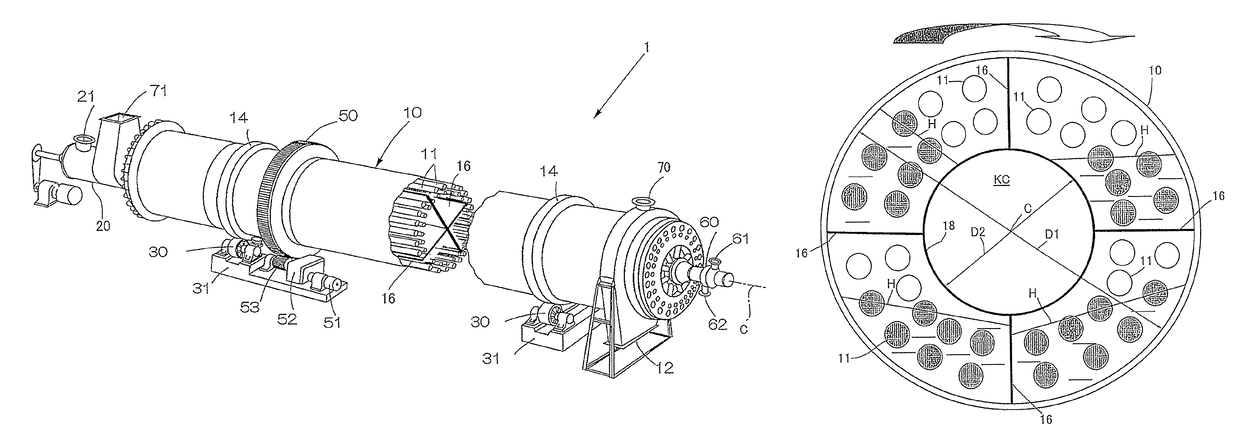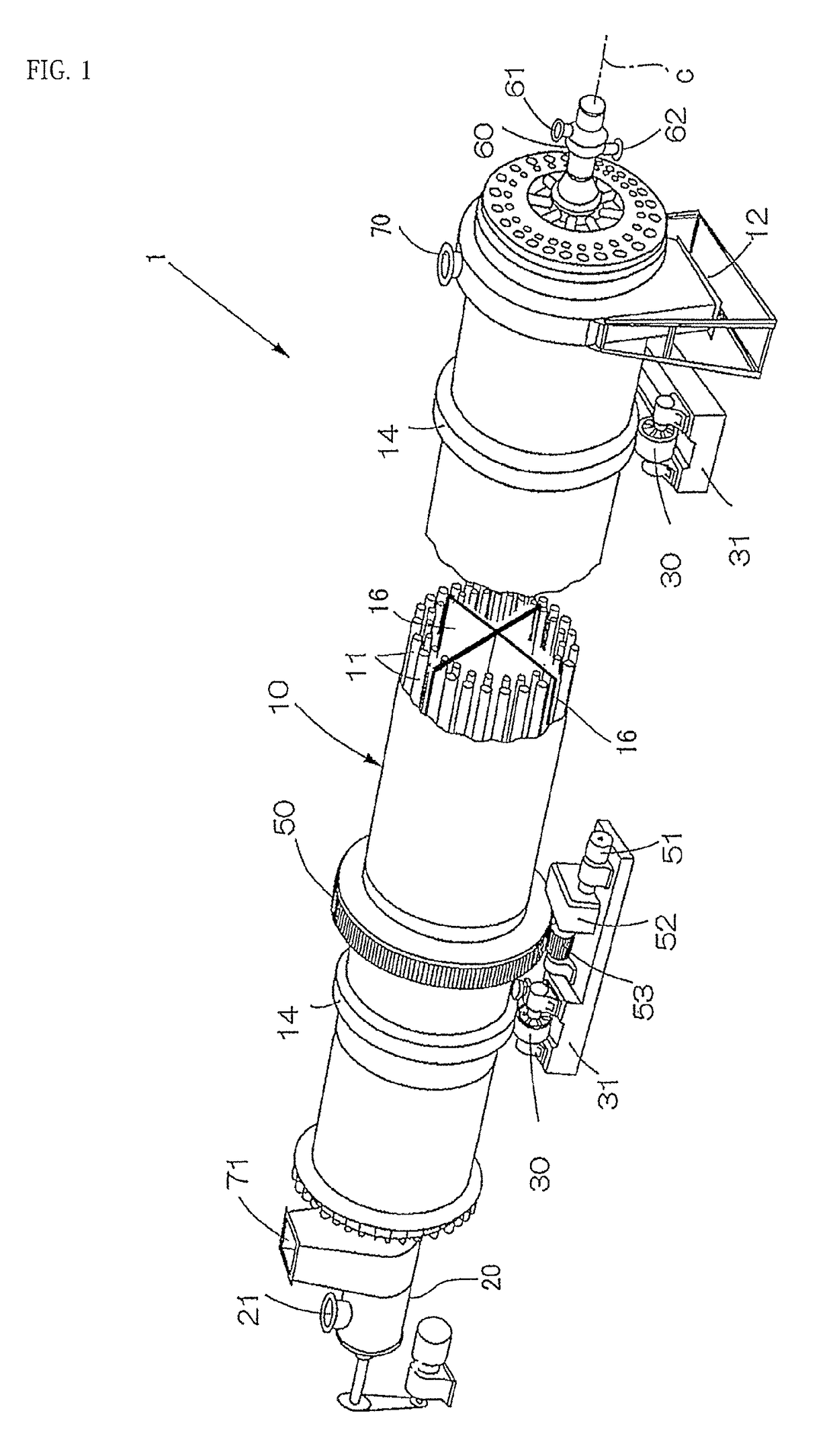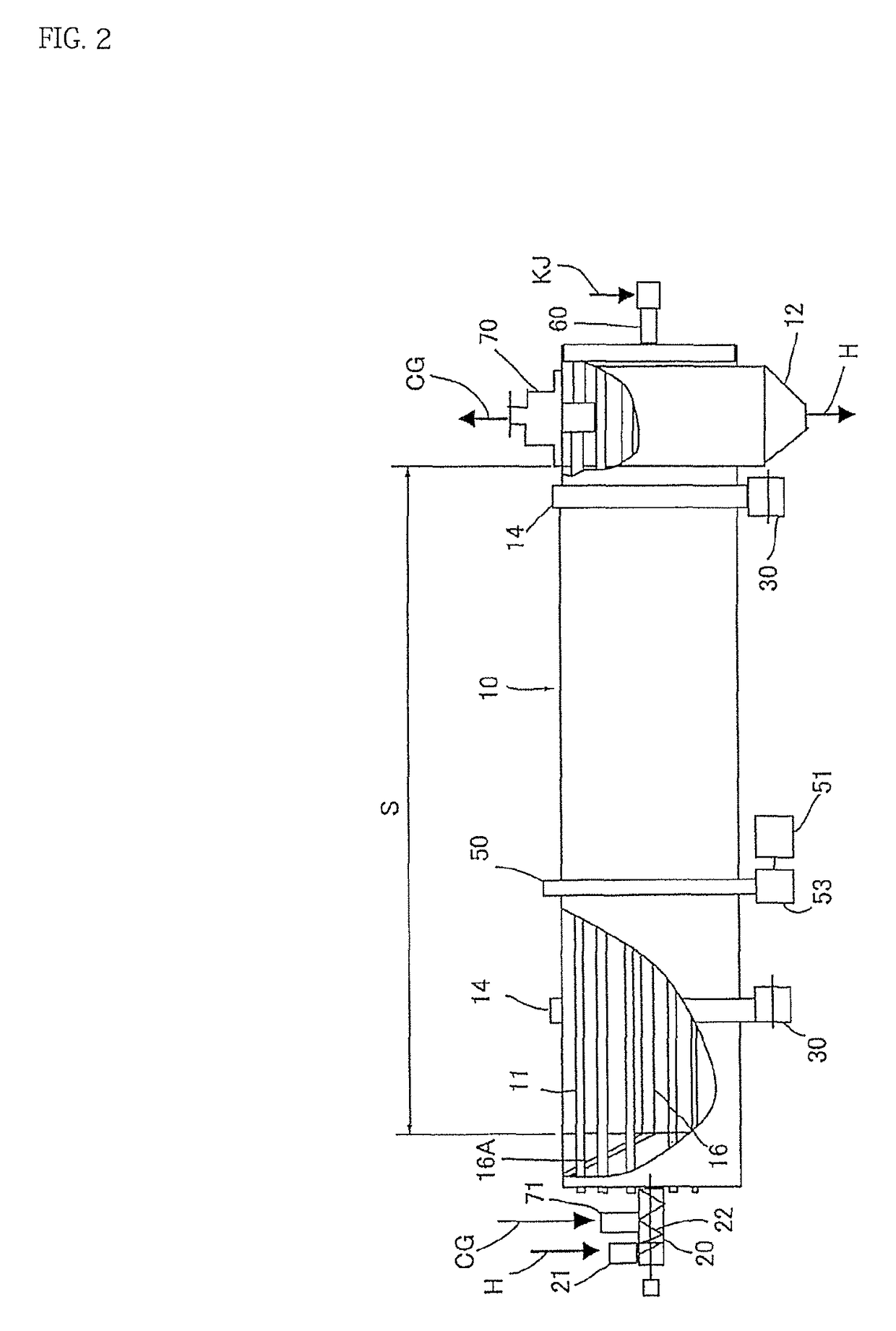Indirectly heated rotary dryer
a rotary dryer and direct heating technology, applied in drying machines, drying, light and heating apparatus, etc., can solve the problems of inefficient and non-economical, power increase, and above has been non-economical with low energy efficiency, and achieves improved energy saving performance, reduced power required for rotation, and reduced non-contact of heating tubes
- Summary
- Abstract
- Description
- Claims
- Application Information
AI Technical Summary
Benefits of technology
Problems solved by technology
Method used
Image
Examples
examples
[0086]Next, following is description of a comparison test between an example based on the above embodiment and a conventional example performed by using a batch testing machine of an indirectly heating rotary dryer.
[0087]First, specifications of the batch testing machine of an indirectly heating rotary dryer are as indicated below.
[0088]Rotating shell diameter: 320 mm
[0089]Rotating shell length: 0.25 m
[0090]Heating tube heat-transfer area: 0.3 m2
[0091]Further, test conditions are as indicated below. Materials to be dried: sewage sludge having approximately 30% moisture content
[0092]Processing rate: approximately 3 kg / h of batch
[0093]Outlet moisture content target value: 10%
[0094]Carrier gas: 5 m3N / h of normal temperature air
[0095]Heated steam: 0.1 MPa (G) of saturated steam
[0096]Rotating peripheral speed: 0.5 m / s
[0097]Number of small spaces in the example: 4
[0098]FIG. 9 is a graph indicating the results of capability of drying moisture in the material to be dried with the example a...
example
[0117]Supplying amount of material to be dried: 470 kg / h
[0118]Inlet moisture content: 33.1%
[0119]Outlet moisture content: 9.8%
[0120]STD idle operation power: 3.11 kW
[0121]STD drive power: 3.22 kW
[0122]Power increase due to load operation: 0.11 kW
[0123]The hold up ratio was calculated on collecting the total amount of the dried material in the indirectly heating rotary dryer after the drying test was completed. The hold up ratio was 57%.
PUM
 Login to View More
Login to View More Abstract
Description
Claims
Application Information
 Login to View More
Login to View More - R&D
- Intellectual Property
- Life Sciences
- Materials
- Tech Scout
- Unparalleled Data Quality
- Higher Quality Content
- 60% Fewer Hallucinations
Browse by: Latest US Patents, China's latest patents, Technical Efficacy Thesaurus, Application Domain, Technology Topic, Popular Technical Reports.
© 2025 PatSnap. All rights reserved.Legal|Privacy policy|Modern Slavery Act Transparency Statement|Sitemap|About US| Contact US: help@patsnap.com



